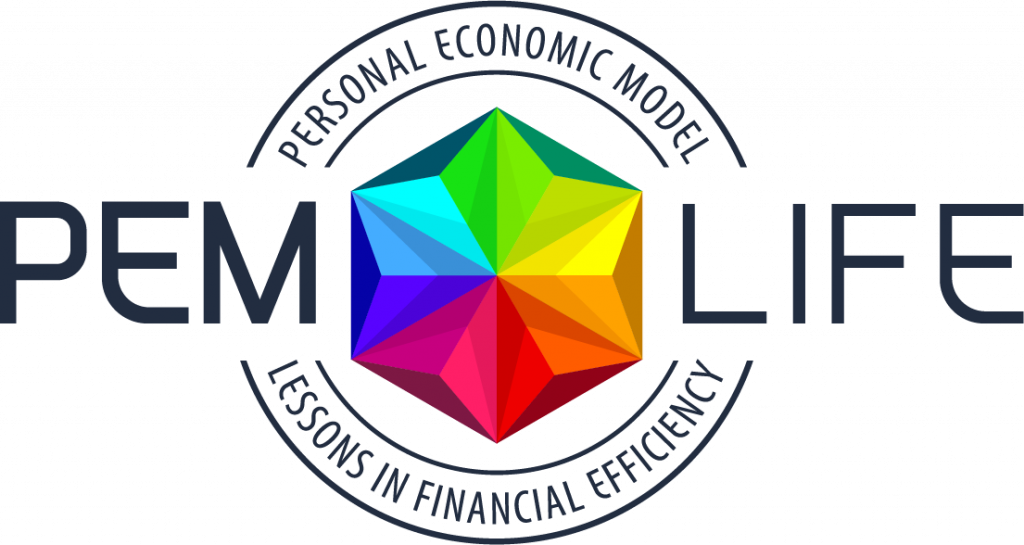Disclaimer: I received a FREE copy of this product through the HOMESCHOOL REVIEW CREW in exchange for my honest review. I was not required to write a positive review nor was I compensated in any other way.
I believe that as Americans we are a spoiled people. We want for nothing, and if there is something more we desire, we simply charge up a bill to pay for it. Society as a whole lives in debt with interest and late fees, and yet continues to spend money they don't have.
It is important to our family to live within our means. That is not always easy as we are a single-income family with 5 children. It means we cook our own meals, purchase used when practical, and learn skills to accomplish things instead of paying others to do them. God has blessed us abundantly, but He also expects us to manage our money wisely. These are concepts that we try to instill in our children as well, so a curriculum that teaches this in detail is greatly appreciated.
The PEM Life (Personal Economic Model) curriculum was created by Don Blanton, a financial advisor for over 30 years. Not only does he have a personal practice, he also trains other financial service professionals to better serve their clients. Don has educated more than 20,000 people in this way and has used those tools and core concepts to create the PEM Life curriculum. His purpose is "to improve the financial literacy and the financial well-being of everyone who completes the course."
The Personal Finance Illustrated® Homeschool Edition curriculum is designed to provide students with the tools and knowledge not only to learn the terminology but also to understand concepts and have the confidence to put them into practice in order to effectively utilize their finances.
The course, geared toward high school students, is a one semester class. It covers over 60 lessons with many hours of video instruction for 18 units.
- Unit 1: Personal Economic Model
- Unit 2: Time Value of Money
- Unit 3: Lifetime Capital Potential
- Unit 4: Opportunity Cost
- Unit 5: The Tax Filter
- Unit 6: Lifestyle Regulator
- Unit 7: Temperament and Finances
- Unit 8: The Importance of Protection
- Unit 9: Debt -- What It Is, What It Is Not
- Unit 10: Pay Cash or Finance?
- Unit 11: The Investment Tank
- Unit 12: The Savings Tank
- Unit 13: Access to Capital
- Unit 14: Qualified Plans
- Unit 15: Mortgages, The Right Choice
- Unit 16: Why Go to Work?
- Unit 17: Principles of Work
- Unit 18: The Danger of Riches
The curriculum incorporates various aspects into learning the information. Each lesson has chapter reading from an online textbook, video instruction using charts, graphs, and other visual examples; interactive resources such as calculators and diagrams; concept quiz; vocabulary quiz; writing assignment; discussion forum; and a reflection post writing prompt.
PEM Life takes care of the grading of all the quizzes and writing assignments, making it as simple as possible for the homeschool parent. My 10th grader is able to complete the lessons on his own by following the plans written out in the curriculum. As he completes each component, the system puts a check mark by it. It also tracks scores, grades, and percentage of course completion.
Mr. Blanton does a great job explaining these topics on the high school level. Many people either do not like or do not understand things like tax liability, interest, collateral, self-financing, mortgage loans, and more, but it is important to have a working knowledge of your finances. My son has been sharing tidbits of the course with me almost daily. It encourages me to see him not only grasping the material, but also being impacted by it. By the end of the first week, he told me, "Great. Now I'm not going to look at money the same ever again." That's the goal!
"A deeply seeded understanding of the way in which financial mechanisms work, not how they are perceived to work, is the first step to ensuring a solid and secure financial future." -- PEM Life
All the interactive resources like calculators and graphs are matching using the same fonts and formats which keeps the whole program well-connected and pleases my son. The visuals and practical learning are really what makes this curriculum superior. Plugging in numbers of given scenarios has helped him to realistically understand the financial concepts.
I do like the aspect of the discussion forum as far as the thought-provoking questions that are given. We have a standing rule in our home though that the kids are not allowed to partake in any online forums at all. We believe that once you start to make exceptions, it's easier for both parent and child to allow more. For now, we have been discussing the ideas together instead of submitting answers.
The section is designed to get the students to think deeply and make practical applications. What financial principles--whether good or bad--have they learned from their parents? Interview someone about an investment and share what they learned from it. Discuss the difference between the process of your work and the product of your work in the light of I Corinthians 3. Choose two dangers from Love & Money and show examples how they've played out in someone's life.
Here's what my 10th grader said:
"It has taught me that the money I earn is finite, and I can't just get more money just because I want it. I should buy only what fits in my price range. If I save money instead always spending it right away, I will earn interest on that money. Also, in order to retire, I need to save enough money now so when I'm not working anymore I can still live the same lifestyle."
The
Personal Finance Illustrated® Homeschool Edition has become my high schooler's favorite course this year. It is practical, biblically-based, thorough, and uncomplicated. It takes concepts that may be difficult to grasp and explains them in a straightforward format that is perfect for teenagers.
I highly recommend this course for anyone who wants a strong understanding of their finances and security for their future.
You can connect with PEM Life on the following social media sites:

































